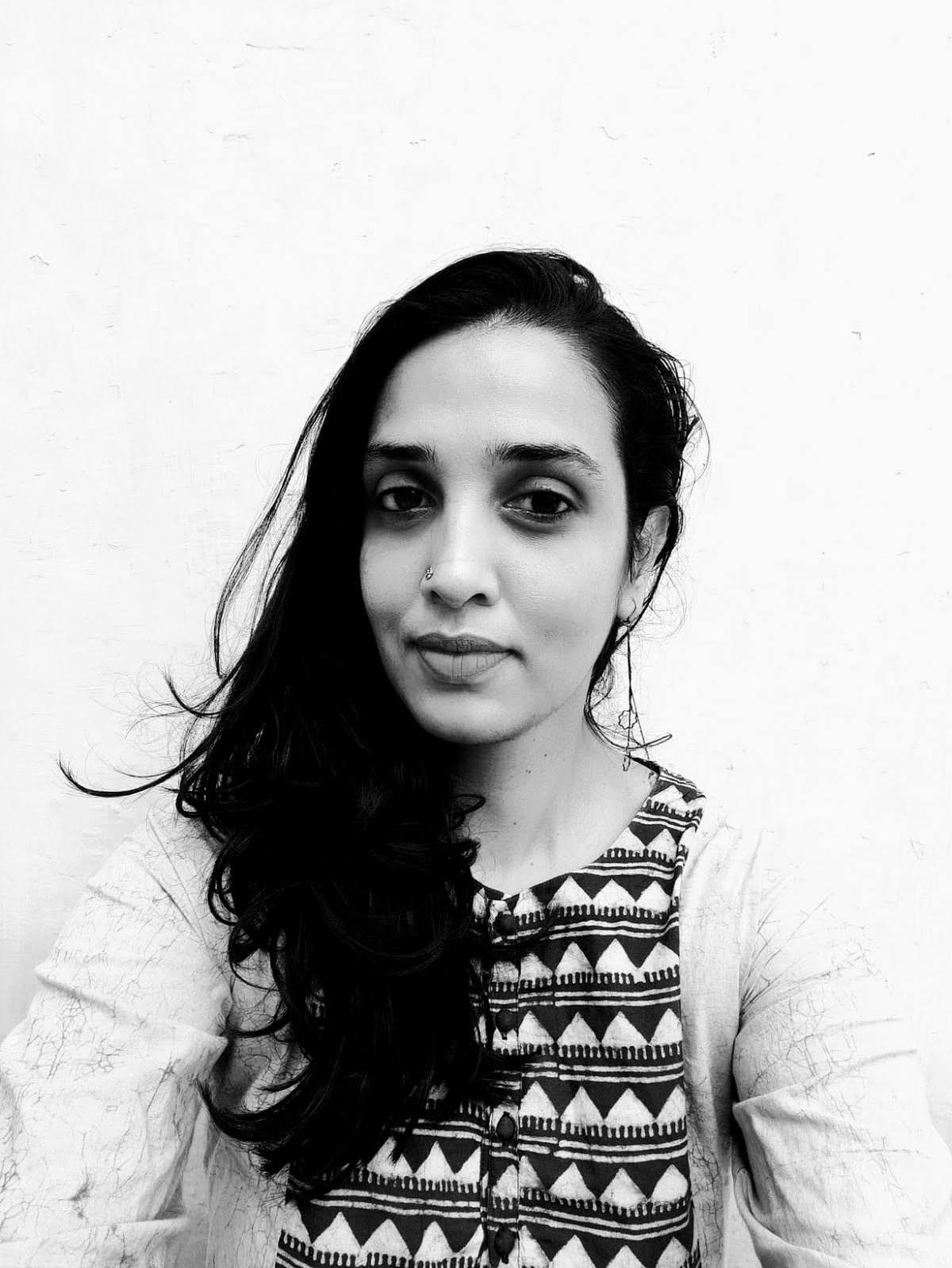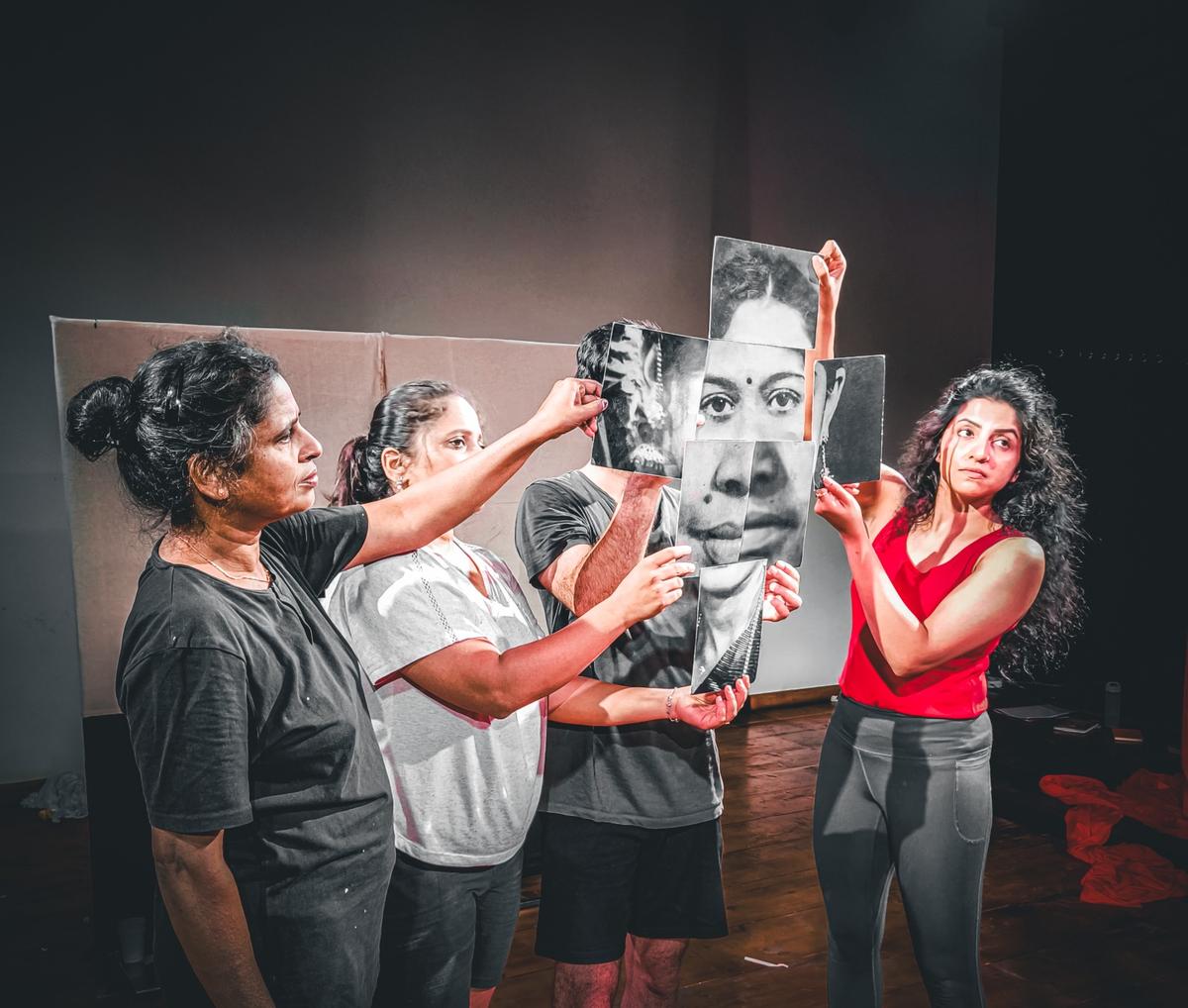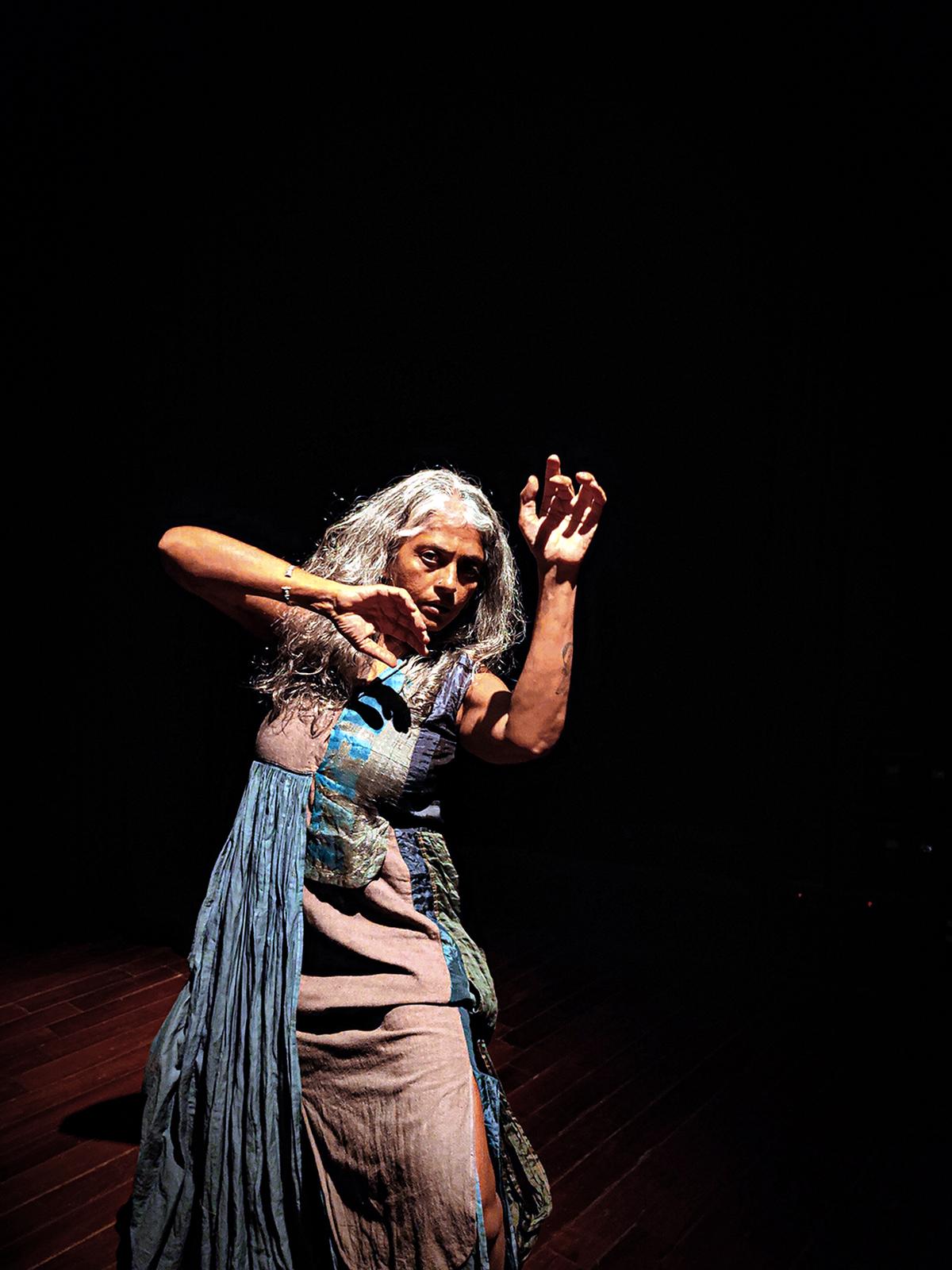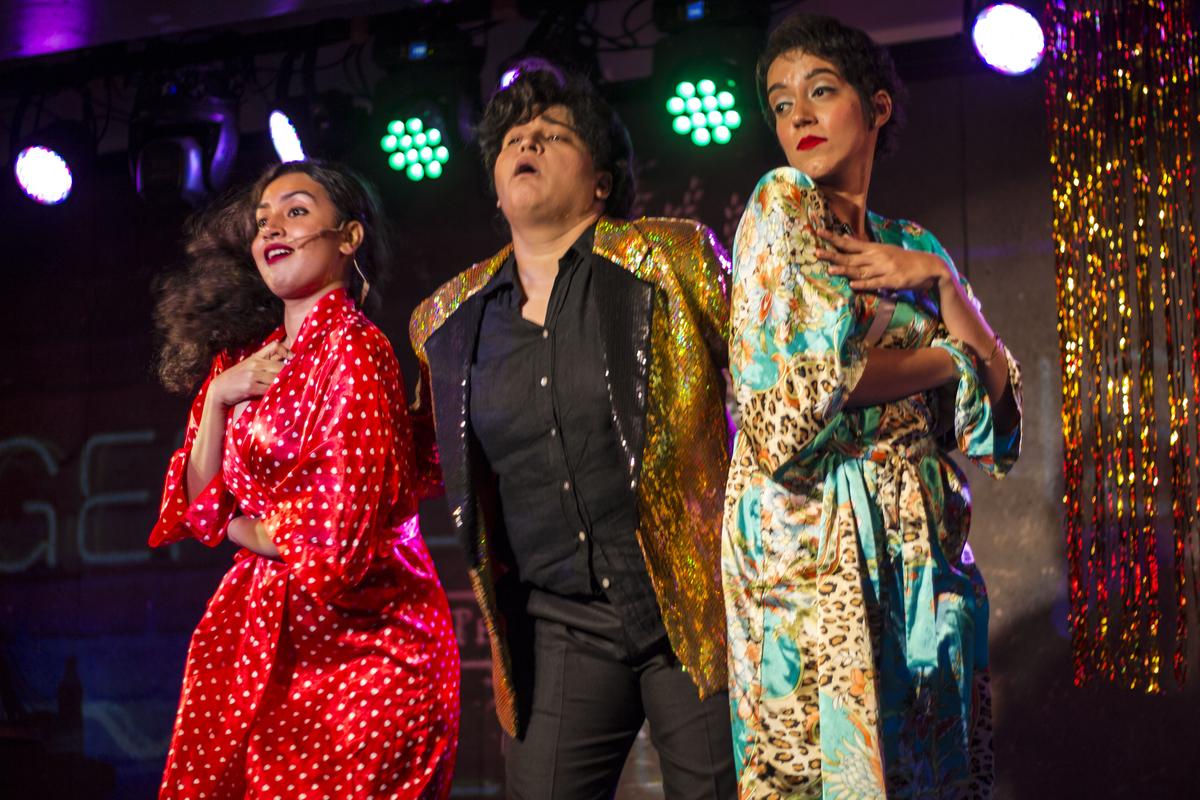History isn’t comprehensive; in fact, it has often forgotten to record more than a few noteworthy names along the way. And it is the arts that are often tasked with balancing out the many oversights.
A couple of months ago, watching Project Darling directed by Bengaluru-based Sharanya Ramprakash, I was fascinated by her refusal to pin down the subject, Khanavali Chenni, an iconic female comic from the Kannada Company Theatre tradition (1960s-80s), by simply using the scant information available about her. Instead, Ramprakash structures the play as a collection of the echoes and effects this powerful performer had on the lives of other women in the theatre company.

Sharanya Ramprakash
| Photo Credit:
The Hindu
Through charming interviews with older female actors, clips of bawdy scenes, songs from old Kannada films, and clowning, she and her actors piece together a fully-formed person who comes across as clever, charming and defiant even if there doesn’t exist a single photo of her except for a chest X-ray. Ramprakash’s Project Darling is a wonderful reminder that the gender of the person driving the storytelling has the power to reshape the world, too.

A scene from Project Darling
| Photo Credit:
Special arrangement
In piecing together the script, Ramprakash found that she had to approach her research from a new angle. “When you are a person without a history, one has got to do the work of building the story for one’s self,” she says. “Because sticking to the existing evidence to tell women’s stories is deeply depressing.” Sidestepping the traditional storytelling techniques of Kannada language theatre, she looked to German postdramatic theatre “where the play isn’t compartmentalised into a clear beginning, middle or end just like life” — and used this format to “propose an alternative imagination” for the life and times of Chenni.
These fresh and investigative takes on gender form “the consistent theme that emerges” from the curation of the second edition of Hyderabad’s Manam Theatre Festival. They go from “turning mythology on its head to slapstick comedy to physical theatre” to bring together “different perspectives and narratives” of gender, sexuality and the body.
Shift in the gaze
While putting together the selection, Harika Vedula, founder-director of the festival, watched and read a lot of contemporary Indian theatre works. “Lately, there have been so many good choices that programming the festival was challenging,” she says.
Shiva Pathak, co-founder and artistic director of Sandbox Collective, the Bengaluru-based art collective, echoes this conundrum of choice. “Compared to a decade ago, there are a lot more practitioners experimenting with ideas and taking risks to try out new means of talking about the body,” she says. In her own experience of looking through applications for their annual festival, Gender Bender — now, in its 10th year — she has noticed that these interventions aren’t just happening within urban contexts, but also in smaller towns. “The ideas around gender, sexuality and the body are becoming more integral to the arts, with more spaces and festivals looking to programme these kinds of projects. There are more women making plays about women, so the gaze has changed, too,” she explains. “If there aren’t existing stories, then scripts are being researched and devised. And it isn’t always a poignant or serious exploration; a lot of them are employing humour to get audiences to think while they are laughing.”
Shiva Pathak
| Photo Credit:
Special arrangement
Kirtana Kumar, a Bengaluru-based theatre and film director, who curated the recently-concluded inaugural edition of the KNMA Theatre Festival (by Delhi-based Kiran Nadar Museum of Art), notes another shift in contemporary theatre: “the increase in small, experimental, mobile works that can travel”. The more agile contemporary theatre “challenges intersectional issues, asking different questions of caste, of gender and of sexuality”. Like Project Darling, which is travelling to the Manam Theatre Festival. While Kumar is excited by this notable change in the theatre scene, she warns “that there’s also the danger of something becoming too trendy and therefore not going too deep”. But she’s also okay with it “because at least the works are getting out there” and reaching audiences; and “that women, trans-women and queer people are enabling this movement is more interesting” to her.

Kirtana Kumar
| Photo Credit:
Special arrangement

“The new, captivating works that are being made in the field of contemporary theatre are coming from women, trans-women and the LGBTQIA+ community, who seem to be really changing up the subject matter, the format and the form of this practice.”Kirtana KumarTheatre and film maker
Laughter is stronger than anger
In her practice, Nimmy Raphael, co-artistic director of Adishakti, the Pondicherry-based theatre arts laboratory, focuses on marginalised characters from our myths. At the theatre festival in Hyderabad, her plays Nidravathwam and Urmila fill out the lives of Kumbhakarna and Urmila from The Ramayana with care and complexity. “I have a problem with thinking about them as ‘minor characters’,” she clarifies. “Rather, I like to approach them as characters that play a part that’s major in their own lives, and moves the overarching story forward too.”
Nimmy Raphael in Nidravathwam
| Photo Credit:
Special arrangement
In Urmila, like most good jokes that sharpen the truth, Raphael “uses laughter as a mode of protest”. She says, “When one laughs, it becomes the most threatening of emotions. It is the most powerful tool of political protest. For me, Urmila laughs a lot. She laughs at things around her, at herself, at her situation. And being witness to someone overcoming their circumstances with laughter might allow everyone to see the Urmila in themselves.”
A scene from Urmila
| Photo Credit:
Special arrangement
For the community
With Manam Theatre Festival’s second edition, Vedula wants to continue the work of building a community around theatre in Hyderabad. “So, besides the performances, there will be panel discussions around theatre as well as workshops with the visiting troupes,” she says, adding that “nurturing the future generation with exposure to art from a very early age is important, being a mother myself to a five-year-old.” This year, Manam has teamed up with Hyderabad Childrens’ Theatre Festival “to bring theatre for children” into the mix.
Sparking conversations
Meanwhile, Mumbai-based Patchworks Ensemble’s The Gentlemen’s Club employs the form of drag kings — women performatively presenting as men — to explore contemporary conceptions of masculinity. “As performers, when we get into the gear, with the costumes, the wigs, and the make-up, it becomes this wonderful mask to play with,” explains co-director Puja Sarup. In her onstage persona as Shammi Kapoor, the Bollywood star of yesteryears, she channels “his electrifying screen presence, his swagger”.

Drag kings of The Gentlemen’s Club
| Photo Credit:
Special arrangement
This ability, concludes Sarup, to tell stories of gender by bringing forgotten characters to the forefront or playing with the presentation “allows for dialogue on these seemingly difficult topics to take place within and among families and friends. These productions might be a good starting point for these conversations”.
Manam Theatre Festival runs from November 15 to December 15 in Hyderabad.
The author is a Bengaluru-based poet and writer.
Published – November 08, 2024 11:22 am IST
